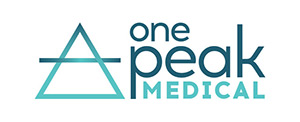
Hormone Testing for Men
Hormones regulate vital aspects of human health, including mood, libido, metabolism, and development. Testing your hormones can provide insight into the changes your body may be experiencing and understand how they are affecting you.
Your Hormones, Your Health
As early as the age of 30, men will begin to experience a decline in testosterone, resulting in fatigue, decreased libido, memory loss, insomnia, and reduced muscle mass.
Finding the right hormone balance offers men significant benefits, such as increased energy, better sleep, stabilized moods, and support in aging physically, emotionally, and mentally. Research has also shown that hormone therapy improves overall health by reducing the risk of disease.


On-site Hormone Testing
As part of assessing your baseline health and ongoing hormone balance, we offer a large selection of hormone testing for men from anti-aging tests to erectile dysfunction (ED), progesterone to testosterone tests.
Hormone testing can reveal an abundance of important information about a man’s health. All OnePeak Medical clinics provide onsite blood draws and laboratory testing for optimal convenience.
Bioidentical Hormone Therapy
Bioidentical Hormone Therapy offers effective hormone support for both men and women. Pellets, placed under the skin, consistently improve hormonal imbalance by releasing small, physiologic doses of hormones and providing optimal therapy.
Get to the Root
Hormones regulate so much of what we do every day. When all is right, we barely notice its effects. However, when a hormone imbalance occurs, it can seem like nothing is going right.
We find the root cause of your symptoms so we can successfully treat your hormone imbalance and help you feel better, faster. Common symptoms include:
- Anxiety, irritability, and depression
- Change in muscle strength/mass
- Chronic joint pain
- Difficulty sleeping/insomnia
- Erectile dysfunction
- Fatigue/exhaustion
- Infertility
- Loss of libido
- Skin and hair changes
- Weight gain around the mid-section

How Low Testosterone Affects Men
In this video, Dr. Nisha Jackson shares what happens to men when they are experiencing low testosterone. She explains all symptoms related to low testosterone, and how stress glands rob from testosterone in order to convert to stress hormones that men need to manage everyday stress. Nisha gives insight on how this leads to men feeling sluggish, exhausted, and lacking enthusiasm.
Frequently Asked Questions
Your hormones are extremely important for your general health which is why so many symptoms may indicate an imbalance. The symptoms you experience will depend on which glands have failed to work correctly and the specific hormones affected.
Hormones play a fundamental role in your overall health. As a result, there’s a broad range of symptoms that could signal a hormonal imbalance.
Symptoms of a hormonal imbalance in men include:
- Loss of libido
- Erectile dysfunction (ED)
- Reduced muscle mass
- Decreased beard growth and body hair growth
- Fatigue
- Changes in mood/depression
- Insomnia
- Brain fog/difficulty concentrating
- Unexplained weight gain or loss
Testosterone deficiency in men has become more prevalent in recent years. As men age, their bodies undergo many changes. Over a third of all men over the age of forty show symptoms of testosterone deficiency.
Symptoms of low testosterone in men include:
- Fatigue/exhaustion
- Muscle strength diminished
- Muscle mass decreased
- Insomnia, wakefulness at night
- Increased fat around the midsection
- Irritability
- Lack of focus and attention
- Erectile dysfunction – difficulty getting and maintaining an erection
- Low libido
If you’re experiencing any of these symptoms, you may be suffering from a decrease in testosterone. To combat this decrease, testosterone replacement therapy could be a safe and effective treatment.
Men of all ages may be interested in understanding their hormones (particularly testosterone, estradiol, cortisol, and DHEA levels) as your hormones can offer greater insight into your overall health. Testosterone levels begin to decline in men beginning in their early 30’s. Most men maintain adequate levels of testosterone into their mid-40’s to mid-50’s, some into their late 70’s to early 80's.
Men should be tested when they begin to show signs of testosterone deficiency such as brain fog, erectile dysfunction (ED), insomnia, mood changes, anxiety, etc. Most men should be tested around the age of 50, however, it’s never too late to benefit from hormone therapy. Through testing, you have the opportunity to better understand your hormone levels and the role they plan in your overall health.

Contact Us
We are passionate about building lasting relationships through personalized treatments and superior care. Contact us today and schedule your consultation towards wellness and vitality.

